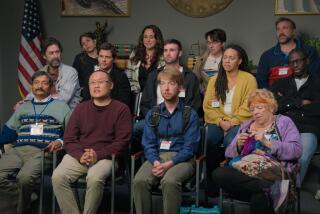The Cutting Edge: Computing / Technology / Innovation : INTELLECTUAL PROPERTIES : Patent Suit Jury Trials Are the Rage
- Share via
Patent litigation is booming, and more patent disputes are being decided by jury trials--often for astronomical sums. Therein lies the reason for a change in how these lawsuits are handled.
“Surveys of real and surrogate jurors indicate they strongly favor patentees,” patent attorney Timothy L. Swabb wrote in the newsletter Intellectual Property Report. “Jurors have a high regard for the U.S. Patent Office and for the patent system, although generally they know little about their actual workings.”
Swabb found that in the 12 months ended June 30, 1972, 121 patent suits were tried, but only two involved juries. The figures for the comparable period 20 years later: 100 trials, 51 of which had juries.
Smart lawyers for patent holders want juries because jurors tend to favor independent inventors and small companies over large or foreign competitors.
Swabb said jury awards also tend to be larger. He cited a $1.2-billion jury award to Litton Industries Inc. last year in its patent infringement suit against Honeywell; the jury also found the infringement to be willful, “raising the specter of additional damages and attorneys’ fees.”
Finally, jury verdicts in favor of patent holders are likely to be upheld on appeal, said Swabb, whose law firm, Seyfarth, Shaw, Fairweather & Geraldson, publishes the newsletter.
In patent cases, Swabb said, winning the jury’s sympathy is crucial. “The demeanor of the inventor and the corporate representative may be more important than the analyses offered by the battling experts,” he said.
Juries may soon lose some of their influence in this arena; federal appeals panels “have shown an inclination to take some important issues away from the jury and put them into the hands of the trial judge,” Swabb said.
But he added that there is no going back; now that patent holders--and their lawyers--know juries give them an edge, “jury-tried patent cases seem here to stay.”






